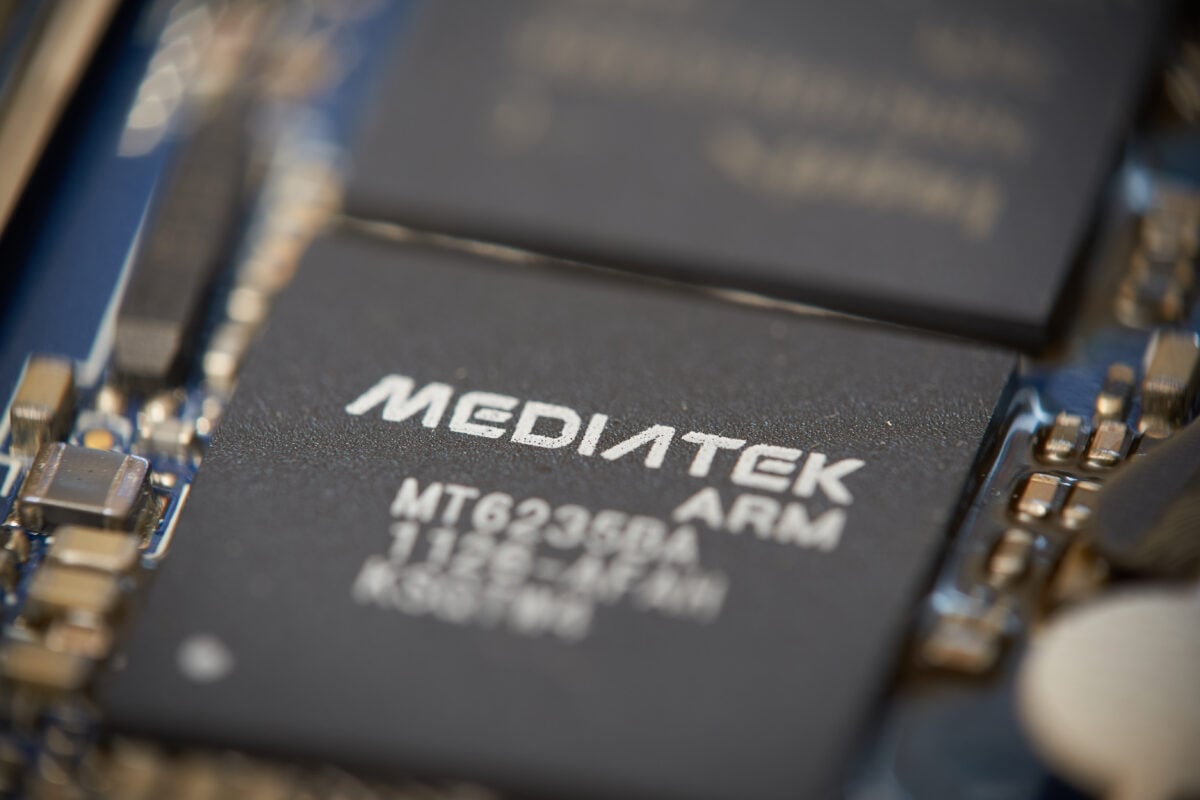TLDRs;
- MediaTek unveiled the Dimensity 9500, a 3nm chip designed to power advanced AI tasks on smartphones.
- Xiaomi, Vivo, and other Android brands could use the chip to challenge Apple and Qualcomm in premium markets.
- Google and Nvidia partnerships further strengthen MediaTek’s position in AI hardware across cloud and consumer tech.
- Phones powered by the Dimensity 9500 are expected in Q4 2025, competing directly with Apple’s iPhone 17.
Taiwanese semiconductor giant MediaTek has officially introduced its latest flagship processor, the Dimensity 9500, a cutting-edge mobile chip designed to supercharge artificial intelligence features on smartphones.
Built on a 3-nanometer process by Taiwan Semiconductor Manufacturing Company (TSMC), the new processor is being hailed as a potential game-changer in the premium smartphone segment.
With its debut, MediaTek is positioning itself not just as a competitor to Qualcomm and Apple but also as a technology enabler for brands like Xiaomi, Vivo, Oppo, and other Android manufacturers seeking to close the performance gap in AI-driven features.
What the Dimensity 9500 Brings
The Dimensity 9500 has been engineered to handle more complex AI tasks directly on smartphones, reducing reliance on cloud-based processing. MediaTek says the chip will enhance live call and meeting summaries, boost AI model execution speeds, and deliver crisper 4K photos.
🚀 Unleashed: MediaTek Dimensity 9500 is here — our most advanced smartphone platform. Best‑in‑class performance, next‑gen AI, and stellar power efficiency for the future of flagship mobile. Details: https://t.co/0f62vAHBUU #AllBigCoreCPU #MediaTekDimensity9500 pic.twitter.com/lGOOdbFWwL
— MediaTek (@MediaTek) September 22, 2025
According to the company, these features are not just incremental upgrades but part of a broader push to make smartphones smarter and more efficient. Devices powered by the Dimensity 9500 are expected to hit the market in Q4 2025, a timeline that places them in direct competition with Apple’s upcoming iPhone 17 series and Qualcomm’s next-generation Snapdragon processors.
Boost for Android Ecosystem
For smartphone makers like Xiaomi and Vivo, the Dimensity 9500 could provide the performance leap needed to appeal to premium buyers. In recent years, both brands have struggled to differentiate themselves in a crowded market dominated by Apple at the high end and Samsung in the middle.
By leveraging MediaTek’s latest chip, these manufacturers could offer flagship-level devices that rival or surpass Apple’s AI capabilities, while potentially pricing them more competitively.
Analysts suggest that Vivo, in particular, could benefit as it seeks to strengthen its position in Southeast Asia and India, regions where performance-driven, value-for-money devices are highly sought after.
MediaTek’s Expanding Tech Partnerships
The Dimensity 9500 launch is part of a broader strategy by MediaTek to expand its role in the global semiconductor industry. In March this year, reports revealed that Google had partnered with MediaTek to co-develop next-generation Tensor Processing Units (TPUs) for AI research and cloud clients. Google’s choice was partly influenced by MediaTek’s strong relationship with TSMC and its ability to deliver lower-cost alternatives to Broadcom.
Meanwhile, earlier in January, Nvidia unveiled Project Digits, an AI desktop computer featuring a central processor co-designed with MediaTek. Nvidia CEO Jensen Huang confirmed that MediaTek could sell this CPU independently, highlighting the chipmaker’s growing importance in both consumer and enterprise markets.
Competitive Landscape Heats Up
The Dimensity 9500’s release raises the stakes in the ongoing race among semiconductor leaders. Qualcomm has long been the go-to provider for Android flagship devices, while Apple has steadily advanced its in-house silicon capabilities. MediaTek’s entry into the premium AI-focused market signals that it no longer wants to be seen as a “value-only” option.
If successful, the Dimensity 9500 could redefine the competitive balance, giving Android brands more freedom to innovate and putting pressure on Qualcomm and Apple to accelerate their AI chip strategies.






